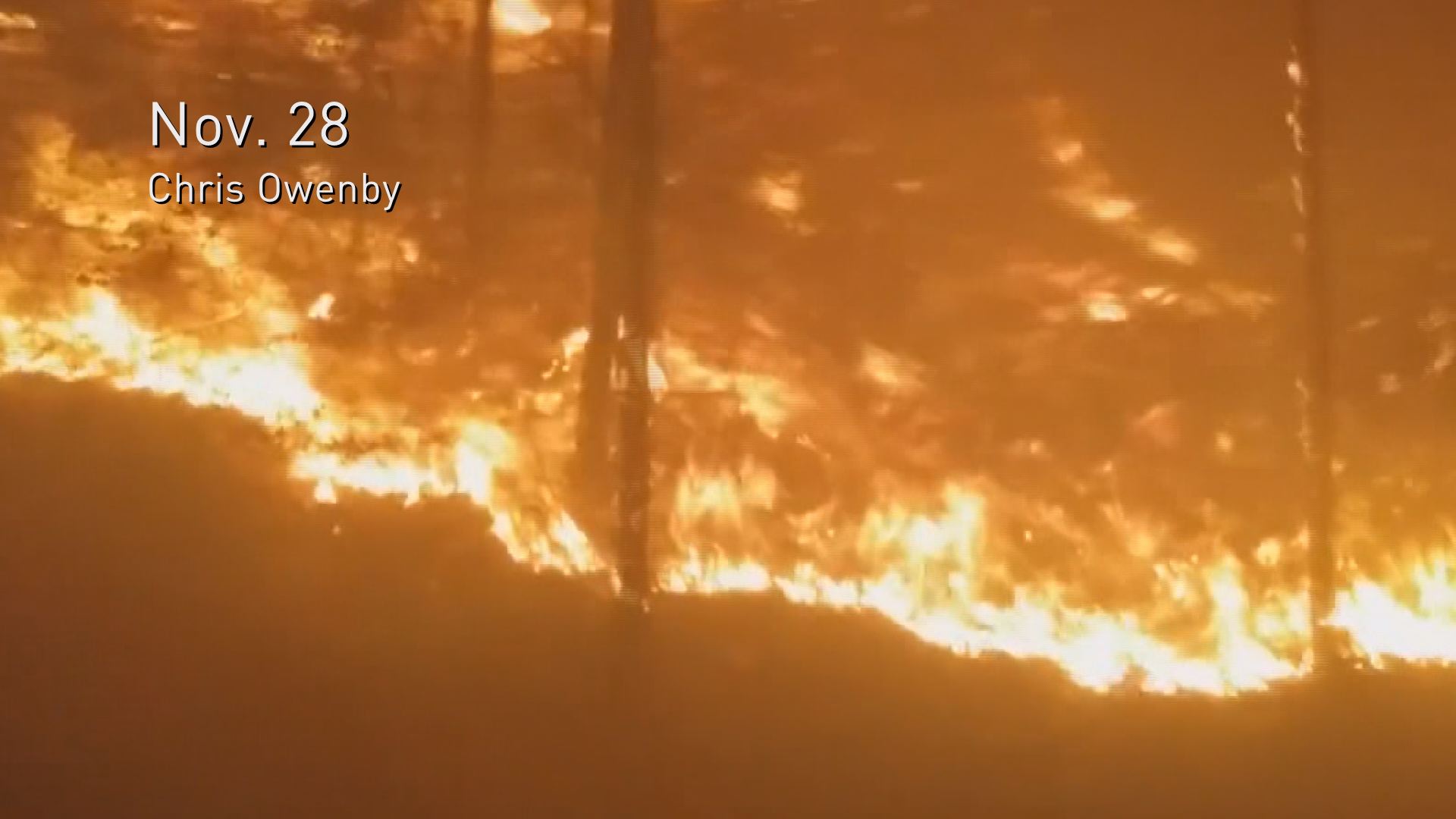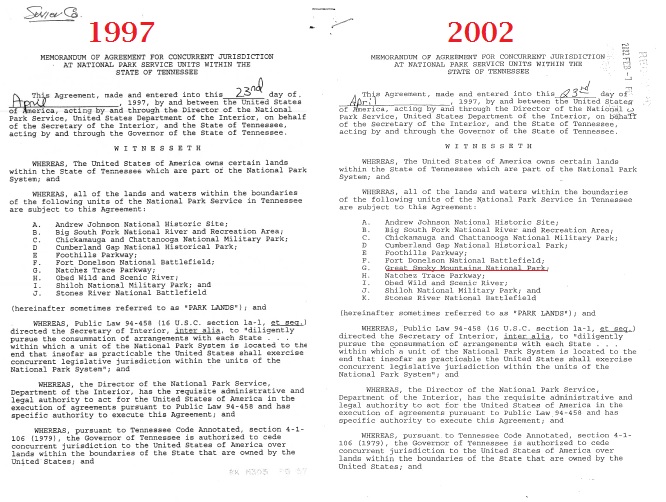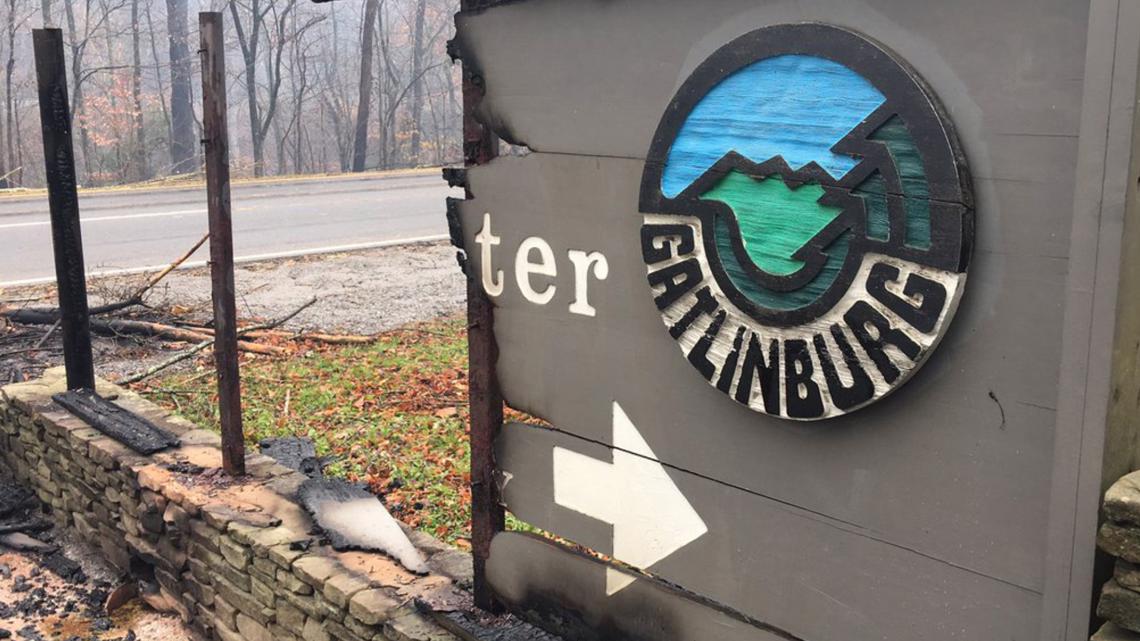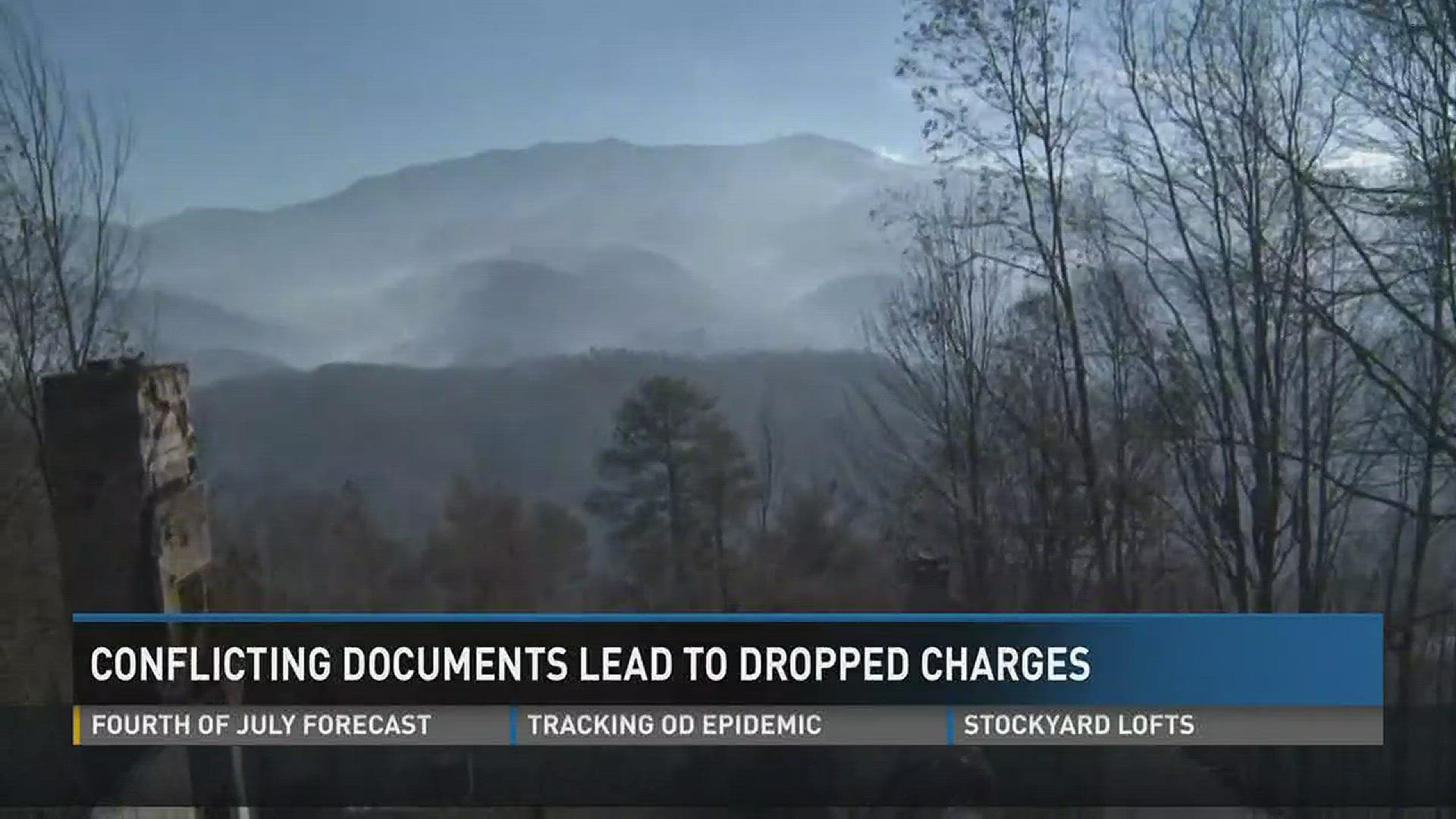An agreement dated April 23, 1997, granted state authorities the ability to prosecute crimes committed on federal lands within Tennessee, including the Great Smoky Mountains National Park, the document shows.
Another version of the April 23, 1997, agreement, however, discovered after the Sevier County district attorney filed charges in the November fire disaster, has a glaring omission: the Smokies isn't on that list of lands for which state prosecutors can pursue charges.
That discrepancy in the documents played a part in the Sevier County district attorney general's decision to drop charges Friday against two boys accused of starting a fire in the national park on Nov. 23, 2016.
What appears to be an updated version of the agreement, stamped Feb. 7, 2002, adds two pages and includes the Great Smoky Mountains National Park. The park is not mentioned in another version of the 1997 agreement, which meant only federal authorities could level charges for crimes in the park.
Adding to the mystery: both records show the exact same signature for the National Park Service director and for the Tennessee governor, then Don Sundquist.
But the person who was Park Service director in 1996 and 1997 had been replaced by another chief by the time somebody stamped the 2002 agreement.
Dunn said in a press release Friday that the state couldn't prove beyond a reasonable doubt that the original blaze inside the park, allegedly set the day before Thanksgiving 2016 by the two boys, led to the Nov. 28, 2016, disaster in Gatlinburg and parts of Sevier County.
A storm moved into East Tennessee several days after the original Nov. 23 fire. Authorities said it increased the fire and drove flames into Gatlinburg and surrounding hills.

"Because of the intervening weather event, the State is unable to prove the criminal responsibility of two juveniles beyond a reasonable doubt for the devastation that occurred outside the Great Smoky Mountains National Park," Friday's statement by Dunn reads.
According to the DA, "it became impossible to prove which fire may have caused the death of an individual or damage to a particular structure," his statement reads.


The state had no option but to dismiss the case, Dunn said.
The discrepancy between the two documents also undermined the state's ability to pursue the case, he said.
Dunn said in Friday's release that "this investigation and research revealed the existence of two documents, or 'Memoranda of Agreement' regarding the concurrent criminal jurisdiction between the State of Tennessee and the National Park Service."
"One of these documents specifically lists the Great Smoky Mountains National Park as being part of a concurrent criminal jurisdiction agreement between the State of Tennessee and the National Park Service on behalf of the Federal Government."
Pages 2 and 4 are not part of the 1997 agreement that lacks a 2002 stamp.
The Great Smoky Mountains National Park apparently was added into the agreement as subject G in the 2002 stamped version.

The conflict was brought up to the State Attorney General's Office as well as the U.S. Attorney's Office. Both advised that it was "their respective opinions that the State of Tennessee does not have jurisdiction to prosecute criminal acts that occur wholly within the boundaries of the Great Smoky Mountains National Park."
Despite the changes to the agreement with the 2002 stamp, Gov. Don Sundquist's signature from the original 1997 document was attached. The exact same signatures for Sundquist and the National Park Service Director. A new signature from the National Park Service wasn't on the final page either.



